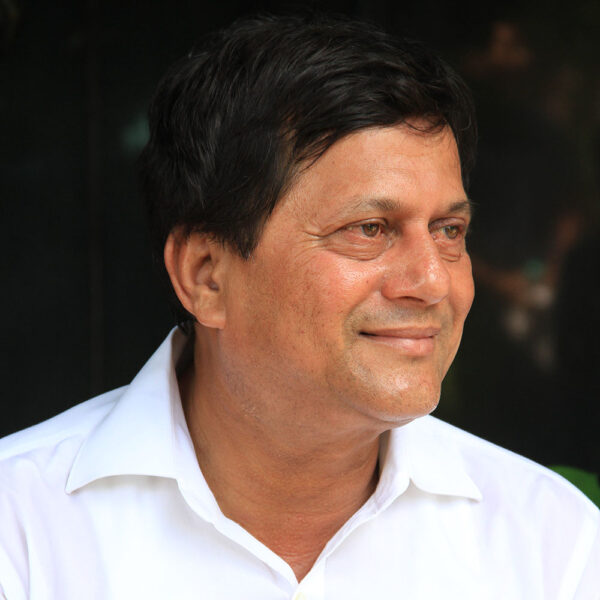
Manoj Kumar Parida
Assistant Professor
Manoj Kumar Parida has been pursuing his doctoral degree from Indira Gandhi Centre for Atomic Research, Department of Atomic Energy, (HBNI-BARC Mumbai), India. In his research he has worked on Monte Carlo Simulations to optimize the geometrical parameters for Semiconductor Neutron detector in order to obtain the maximum efficiency of thermal neutrons. He has extensively worked on micro fabrications of cantilever using Photo Lithography tool. Along with alpha spectroscopy experienced on Si PIN diode, he has experienced of handling and performing the challenging neutron detection experiments. He has also performed electrical characterization of the Si PIN diode before and after neutron irradiation. His area of research primarily focuses Interdisciplinary application of detector design and Charcoal Electronics. Manoj Kumar Parida has over five years of teaching/research experience. Currently he is also working on the project “Charcoal Based Low-Cost Smart Sensor for Agriculture Application”.
PhD,Btech
Research Interests
GEANT4 simulation for obtaining the optimized geometry for neutron detector. Alpha Spectroscopy experiments using Si PIN diode
Parida, M.K, Sundari, T., Sathiamoorthy, V., & Sivakumar, S. (2019). Current–voltage characteristics of silicon PIN diodes irradiated in KAMINI nuclear reactor. Nuclear Inst. and Methods in Physics Research, A, 905, 129-137. Retrieved , from https://www.sciencedirect.com/science/article/pii/S0168900218308465 doi:https://doi.org/10.1016/j.nima.2018.07.014
Parida, M.K, Prabakar, K., & Sundari, S.T. (2018). Efficiency of depleted UO2 based semiconductor neutron detectors in direct and indirect configuration — A GEANT4 simulation study. Journal of Instrumentation, 13. Retrieved , from http://iopscience.iop.org/article/10.1088/1748-0221/13/03/P03006/meta doi:https://doi.org/10.1088/1748-0221/13/03/P03006
Prasanna, G., Parida, M.K., Prabakar, K., Manchi, R., Sundari, S., Jayapandian, J., & Sundar, C.S. (2016). Effect of dead layer on the efficiency of planar semiconductor neutron detectors. IETE Technical Review, 33(1), 45-49. Retrieved , from https://www.tandfonline.com/doi/full/10.1080/02564602.2015.1043151 doi:https://doi.org/10.1080/02564602.2015.1043151
Bhat, N., Sivasankar, S., Naik, R., Mishra, V., Sundari, S.T., Prabakar , K., & Parida, M.K. Solid state thermal neutron detector based on boron based material”. Filed Applications for Indian Patent,.
Parida, M.K., Prabakar, K., Prasanna, G., & Sundari, S.T. (2018). Efficiency of Boric acid coated semiconductor neutron detector - A GEANT4 simulation study. IEEE Xplore, . Retrieved , from https://ieeexplore.ieee.org/document/8487978/authors#authors doi:10.1109/INDICON.2017.8487978 (Conference Paper)
Parida, M.K., Prabakar, K., Sundari, S.T., & Raghuramaiah, M. (2017). Efficiency of depleted UO2 based semiconductor neutron detectors-A Monte Carlo simulation study. AIP Conference Proceedings, 1832, 120024-1 120024-3. Retrieved , from https://aip.scitation.org/doi/abs/10.1063/1.4980709?journalCode=apc doi:http://dx.doi.org/10.1063/1.4980709 (Conference Paper)
Parida, M.K., Jha, V.K., & Sundari, S.T. (2018). A GEANT4 simulation studies on estimating the efficiency of B10 based Stacked Semiconductor Neutron Detector. Soft Computing: Theories and Applications (Conference Paper Accepted)
Jha, V.K., Parida, M.K., & Albert, S.K. (2018). Analysis of SMAW parameters using Self Organizing Maps and Probability Density Distributions. Soft Computing: Theories and Applications (Conference Paper Accepted)
Books :
Parida, M., Vikas Kumar., & Sundari, T. (2019). A GEANT4 simulation studies on estimating the efficiency of B10 based Stacked Semiconductor Neutron Detector. Advs in Intelligent Syst., Computing. Vol. 1053. ISBN- 978-981-15-0750-2. Publisher- Springer.

